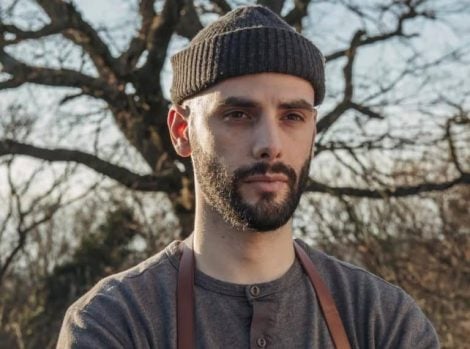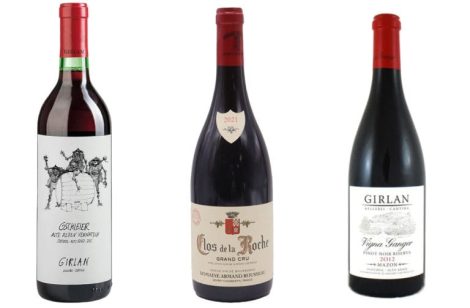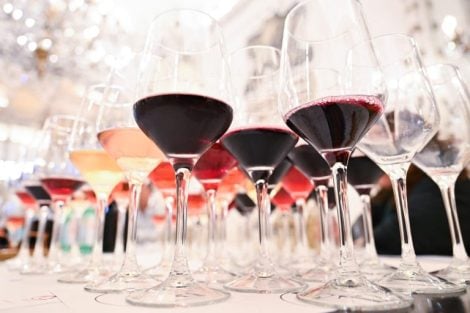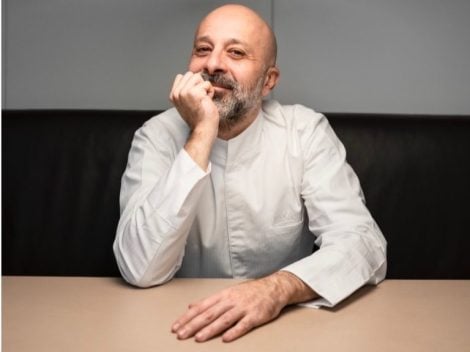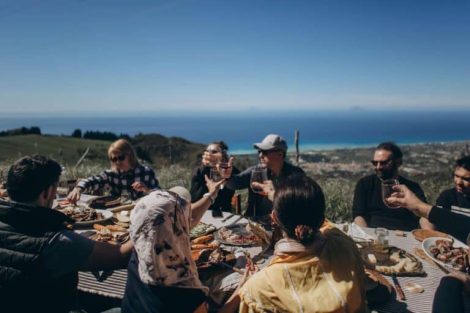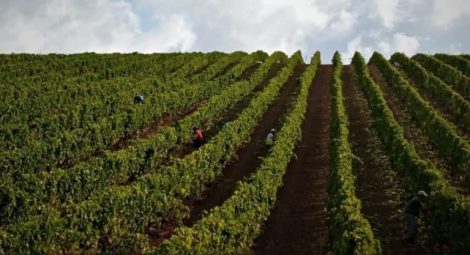He loves to call himself a liquorist perfumer, although in the jargon, he is known as a "nose." A refined nose that allows him to recognize almost 50,000 references among essences, hydrolats, and botanicals. Whether it’s cinnamon, juniper, aronia, nothing goes unnoticed by Baldo Baldinini, 51 years old, one of the first perfumers in Italy. He writes formulas on a musical staff, has even studied the Coca-Cola formula, and if some dishes by chefs like Niko Romito, Massimo Bottura, or Igles Corelli are balanced, it's also thanks to him.
When did your story begin?
As a child, my parents couldn't take care of me because of their jobs, so I went to live with my aunt and uncle. I grew up in my uncle’s barbershop, where he had a passion for perfumes. It was there that I first became familiar with bottles and lotions, so much so that my memories are always tied to a scent.
A memory?
The cologne and Floid aftershave that my uncle used in his shop. I always recognized my classmates, even in high school, by the smell they carried: someone smelled of garlic or tomato because their mother had cooked something with garlic or tomato. Another smelled of lavender because his mother put it in the drawers at home. All my memories are linked to a pleasant or unpleasant odor. This fills in the colors I’ve never seen.
You can't see colors?
No, I have a form of achromatopsia: I see everything in shades of gray, as if I were watching the world on a black-and-white television.
Is there a smell you’ve never forgotten?
My mother's. I must have been around two years old. That smell has never left me.
If you had to describe your mother's scent, what would it be like?
I couldn't describe it in words, but I could draw it on a staff. It would be a smell made of symbols.
On a staff?
I write aromatic accords: I link smells to musical notes, which is why I write formulas on musical staves.
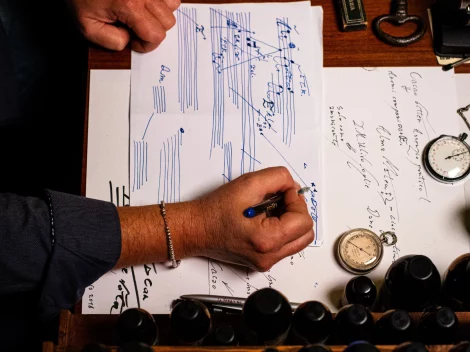
Can you explain that better?
Over time, I discovered I have a sort of synesthesia: some people link sounds to numbers, I do it with smells.
How did this idea come about?
As I grew and studied, I realized there was no literature on the subject, so I invented a method. I started writing the first formulas in notebooks, then compressed them and put them on staves.
What is an aromatic accord like?
It contains symbols indicating the elements to include in a particular product, like cinnamon, schisandra, marjoram, pepper, orange peels, lemon, nutmeg, and in what quantities. Additionally, the method is indicated: for example, distillation if we’re talking about gin; infusion if we’re talking about vermouth, etc. This nomenclature is my own invention, a personal indication.
Who knows the meaning of your accords?
No one. I have everything hidden, I write on staves. If they were taken away, they would be useless. Not even my collaborators know the formulas, only I do.
How is the creation of products possible if no one knows what to put inside?
I determine the blends and am present during production. In the lab, there are sheets stored in a safe.
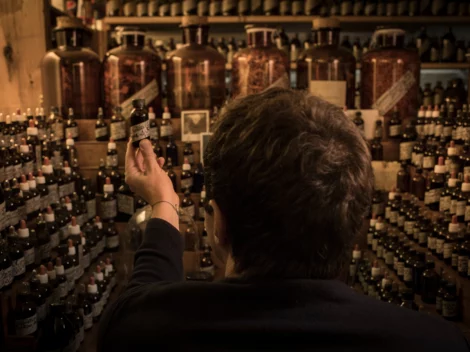
So, secret formulas and recipes like Coca-Cola’s?
Imagine, I studied the Coca-Cola formula for years, and it should be clarified that it was not invented by John Stith Pemberton but by Teofilo Barla. If you read the book published by Arnaldo Forni Editore, the Coca-Cola formula is written between the lines.
Did you study the formula for years, and did you come close?
Yes, I studied it not to reproduce it but to create my own Cola.
So, did you reproduce Coca-Cola?
I have the formula well hidden.
What is your typical day like?
I get up at 5:45. At 6:20, I taste or test certain aromas, then I go to the pool—it’s good for mental clarity—I work at the company until 3 PM to follow production cycles, development, and research, then I go to one of my labs and work on new formulas or products until midnight.
Do you have a ritual before the morning tasting?
Yes, I rinse my nose with water and salt, brush my mouth well, and gargle with water. It’s important to have everything clean and ready to use.
Do you smoke?
Yes, I smoke. That’s why I do the rinsing in the morning and evening.
Doesn’t it affect your sense of smell?
If you have a quality, you have it. If someone has the nose, it’s there regardless of everything.

How do you do the tasting?
I always say you need to “listen” rather than inhale; I find it softer. If we’re talking about an essence, I inhale directly from the bottle; if it’s a raw material, I first inhale then chew, or I put it in alcohol and listen after hours.
Is there a moment when you realize you’re tired?
Sure. I understand it because I have techniques that I can’t reveal: mine is a job full of secrets, done behind the scenes, which is also why there isn’t even a photo of me online.
How long have you been doing this job?
Consulting for chefs for ten years, liquors since I was fourteen, even thirteen.
Did your parents allow it despite you being a kid?
I belong to a generation where there wasn’t so much strictness, I handled wine to make vermouth that the family drank, I never had significant excesses. And alcohol is also used for perfumes, the important thing is to enjoy what you’re doing at any age, where what counts is wonder.
You are amazed every day.
The obsession with smells and aromas must become the pleasure of your life. I don’t have a computer and write everything with pen and paper, since I write and create the computer is useless to me, I don’t use the television and anyway it’s a job that leads you to study every day.
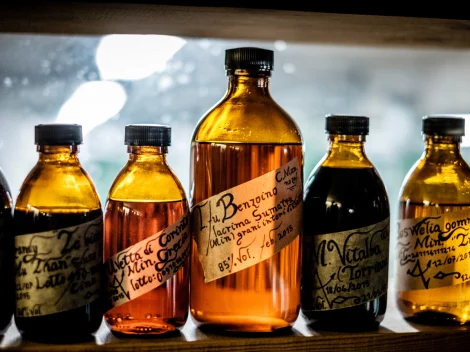
Where do you work?
I live my life between two labs, one in the city of Rimini and one in a small seaside village, and then there’s the olfattorio.
The olfattorio?
It’s an atelier where we have about 50,000 references among alcoholates, extracts, botanicals, essences; we have the most important collection at the European level.
How do you preserve aromas and essences?
All in dark glass at a constant temperature of about 18 degrees: in vials, pill bottles, small jars, wide-mouth bottles, and kept out of light.
So, you work with little light?
When I compose, I have blinding lights, where I store the raw materials there is very little light.
Blindfolded, how many references among essences, botanicals, hydrolats, alcoholates, etc., do you recognize from your 50,000?
I generally recognize everything immediately, if it’s something new, no.
A mentor of yours?
Giacinto Rossetti, founder of the Trigabolo, and Bruno Biolcati. From them, I learned the seriousness in studying and interpreting the raw material and humility. The most important thing.
So, you study continuously.
Yes, I study ancient volumes that I collect, botanical treatises, I get to know the aromatic efficacy and then study new products. When I’m bored, I manually create the formulas I composed months before.
How did you approach gastronomy, becoming the nose for chefs?
As I grew up, I studied perfumery, and then at some point, I thought of combining perfumery with gastronomy. Perfumery only concerns the sense of smell, gastronomy also concerns taste, and combining them is the ultimate: two senses coming into play together.
Which chefs do you work with?
Riccardo Camanini, Igles Corelli, Bruno Barbieri, Philippe Léveillé, Niko Romito, Massimo Bottura. When you take on a chef, it’s forever; each chef has their own sheet, their own tinctures. Each product is personalized, each consultation is personalized.
What kind of work do you do with them?
I don’t create the dishes; I’m the perfumer. The chefs ask me for consultancy on botanicals to compose dishes: they might say, “I need this aroma, this tincture, I want to enhance this element rather than another,” and I provide consultancy to create the requested nuances.
Have you chosen someone to leave your legacy to?
My son.
Does he work with you?
No, he’s almost ten years old. I’ve accustomed him since he was a child: instead of having him study English, for example, I’m teaching him this job. At four, he recognized about thirty botanicals blindfolded, at six about eighty, now over a hundred. In this way, he has learned to use his sense of smell, something almost no one uses anymore. He has opened his mind to abilities that he can develop if he wants to.
So, you will leave your secret formulas to him.
Not all of them, many I will not reveal even to him. It’s right that some things get lost in oblivion.

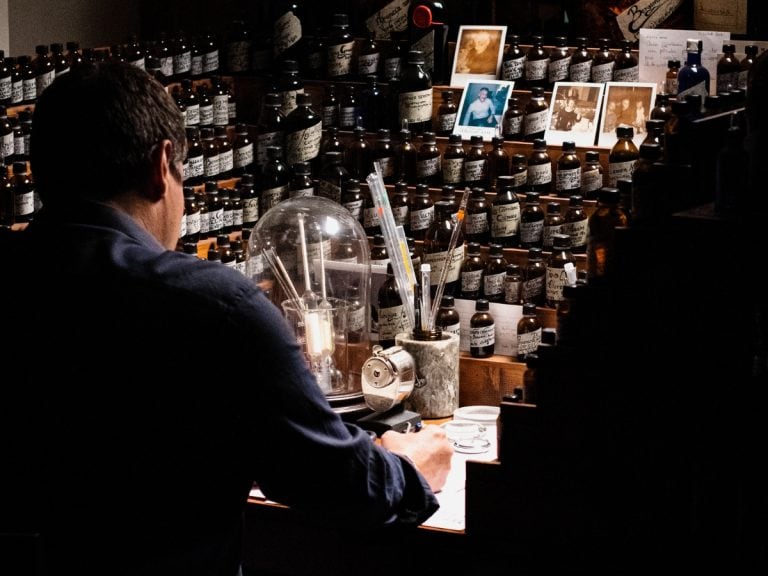
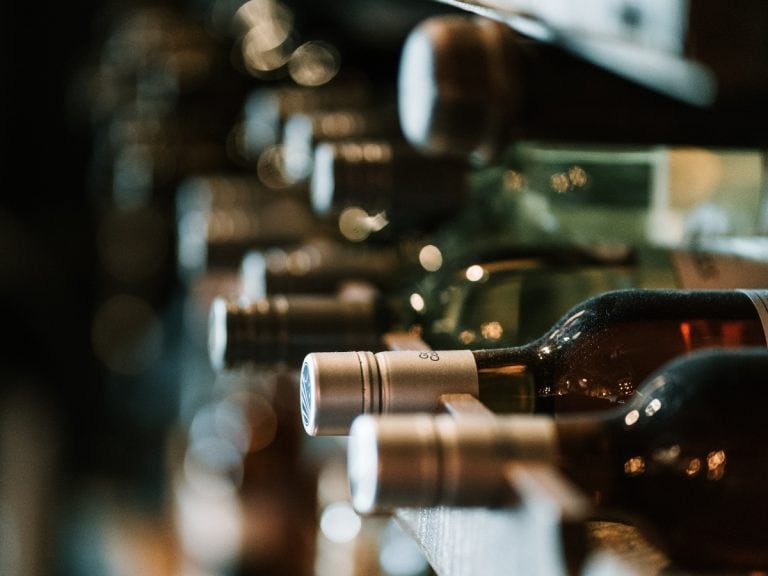 "US tariffs? Start negotiations immediately or wine risks disappearing from the market." UIV's appeal to Europe
"US tariffs? Start negotiations immediately or wine risks disappearing from the market." UIV's appeal to Europe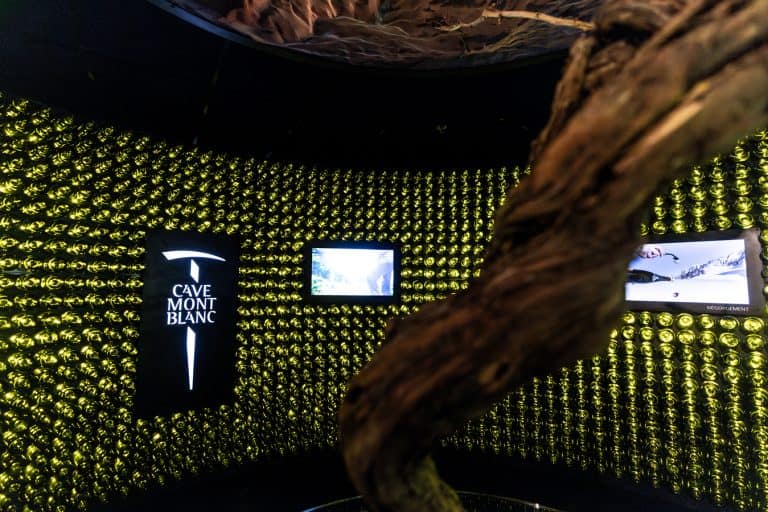 Mountain viticulture reaches new heights: a winery opens at 2,000 metres in Courmayeur
Mountain viticulture reaches new heights: a winery opens at 2,000 metres in Courmayeur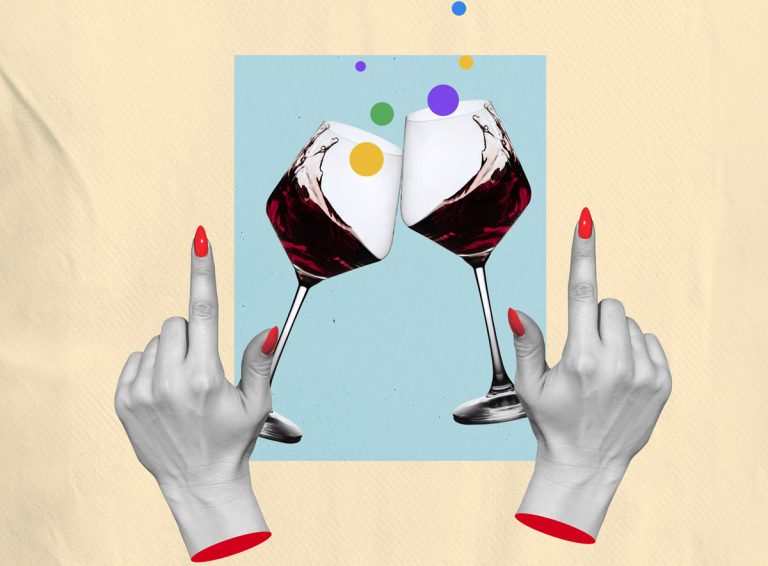 Drinking wine is not good for you. But are we sure it's the biggest evil? What research doesn’t say
Drinking wine is not good for you. But are we sure it's the biggest evil? What research doesn’t say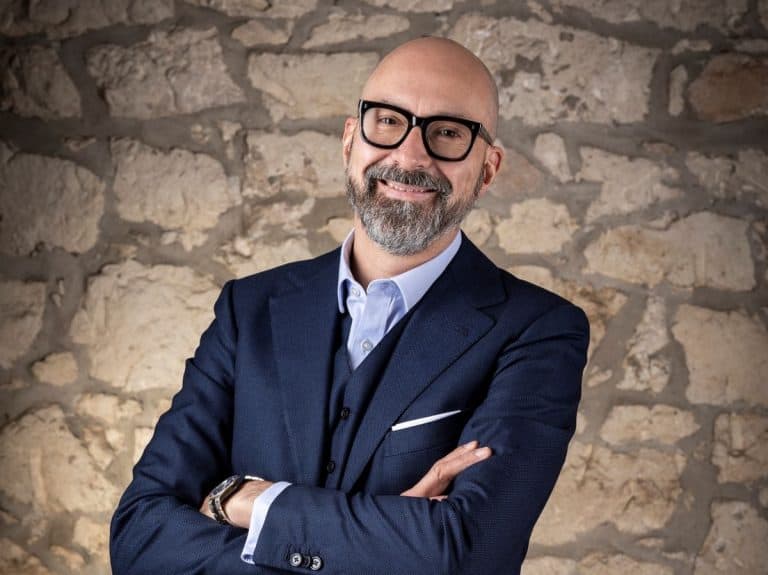 "Dealcoholised? We are ready to invest in Italy too" In Zonin1821's financial report, no-low wines gain ground
"Dealcoholised? We are ready to invest in Italy too" In Zonin1821's financial report, no-low wines gain ground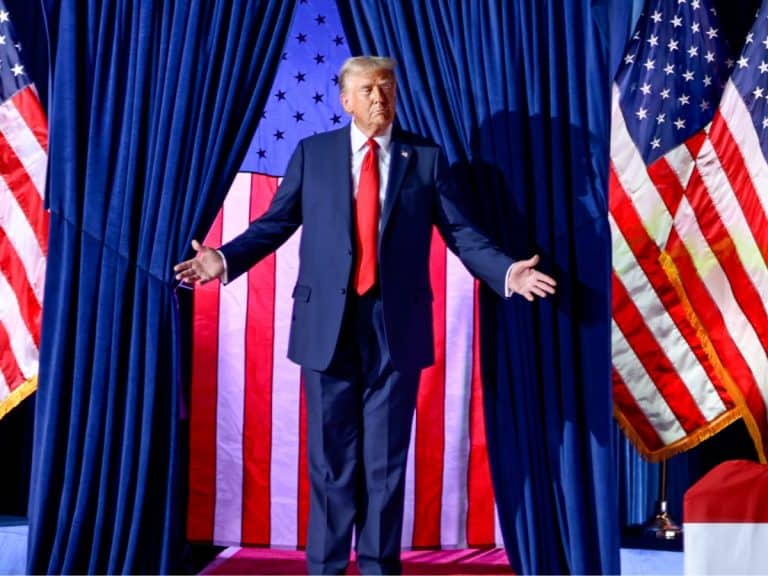 "25% tariffs on EU products": Trump's announcement. A €2 Billion blow to Italian food exports
"25% tariffs on EU products": Trump's announcement. A €2 Billion blow to Italian food exports
